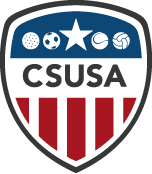Life as a College Soccer Coach in the NCAA with TJ Kostecky
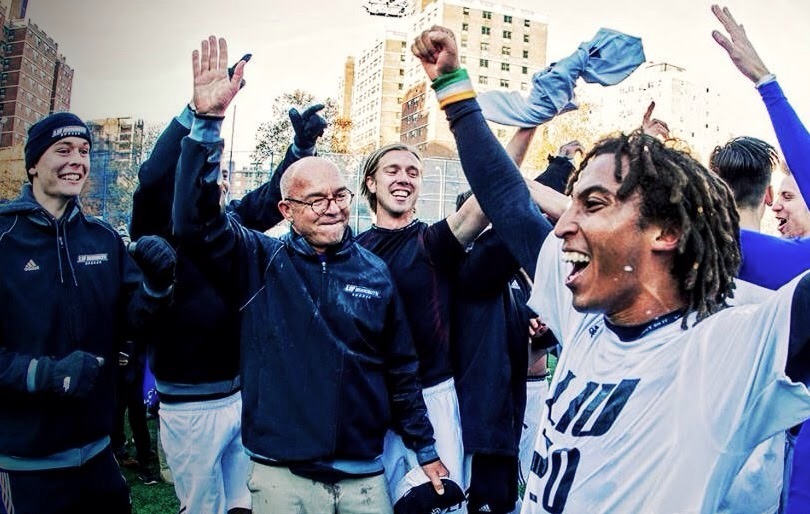
We have known TJ for many years and we are excited to welcome you to the podcast today.
It’s a pleasure to be here and it is great to see you.
Over the years we have had a lot of players under your guidance and coaching. We started our relationship when you were in Brooklyn, coaching NCCA Division 1. Talk us through the change you were trying to implement while coaching to build a successful team when we first came into contact.
I was at the Division 1 school LIU for 20 years, we had some pretty good success early on in my career then hit a bump where for many years we were not successful on the pitch, but in the classroom, we were always successful. Although you come to play the sport, you want to make sure you are doing well in the classroom. Every year we were top 25 in the nation academically which is very important. On two occasions my teams were number one in the country ahead of Stanford, Princeton, Harvard, etc. On the field, we were missing a few things which I think one of those things was maturity. The type of maturity that I had from international students on my teams and they bring a sense of maturity, wisdom that 17-18 US student-athletes don’t have. We started connecting then, Nate Bell who was a terrific assistant I had, started connecting with the work Kim and Stew were doing to add more mature players. We were on the fringe of getting good results and that was my biggest decision.
Was it difficult to blend the international students with the existing American players you had?
No, it wasn’t. We do a lot of work in building culture, healthy culture into our team. I did a lot of work to make sure they were the right people. During the process I would talk to their parents, I was fortunate to have the budget to travel after I got commitments, to see what they were like. I would talk about what we were building here and the exciting part of building this program is your part of leaving a legacy. Your legacy is sitting next to a young man and his legacy is what he did at that school and what he is doing in his life right now. The conversation I always have with players was that I want you to be part of this, but it’s a legacy, it’s heavy lifting, and building something that will be special, and do you want to be a part of that? A lot of people do want to be a part of that. We need that person to be the change maker. When you have great people, amazing things do occur with great people.
You always refer to your team as the Good Guys, what is the reason for this? Do you know what your overall record with ‘Good Guys’ vs opponents?
I don’t know what my record is, I am not a big record keeper or a statistic guy. ‘Good guys’ comes from a mentor I had in a PE teacher in school and whatever team he was on was on, was the good guys and you always wanted to be on the team with the good guys. It is my team, your team, whatever team you are on, CSUSA team, that is the good team.
When you recruit players, you are not only looking for what they can do on the soccer pitch but also what they can do in the locker room. How important is this to you and is this something you looked for in a player?
Huge. We had a player who was American, Michael Ramsey, a goalkeeper from California, and had an awful accident riding a bicycle when he was younger. He was in a coma for a month and nearly died. He came to New York and was recruited as a goalkeeper for us in 2015. He would consistently get injured, but he was the locker room guy. He was talking to the goalkeepers and helping them constantly. We played the Cosmos in his senior year in the spring semester he finally played his first game. Cosmos were the North American league champions and we didn’t have any goalkeepers at the time, so Michael played. Gio Savarese, was coaching at the MLS Portland Timbers, was an LIU grad and dear friend who we would play every spring. They beat us 2-1 and he played out of his mind and the goalkeeper coach came up to us afterward and wanted to get Michael in as a third keeper. Michael wasn’t available because he won the national physics award, only one of these was given out in the country and he won it. When he interviewed for his job at Columbia University, as a top position in neuroscience, in the first hour he was asked how he helped the soccer team become successful. He answered with what we had learned in leadership, compassion, believing in people, modelling the right behaviour, doing things when people aren’t looking. He got the job. He helped our team in so many other areas.
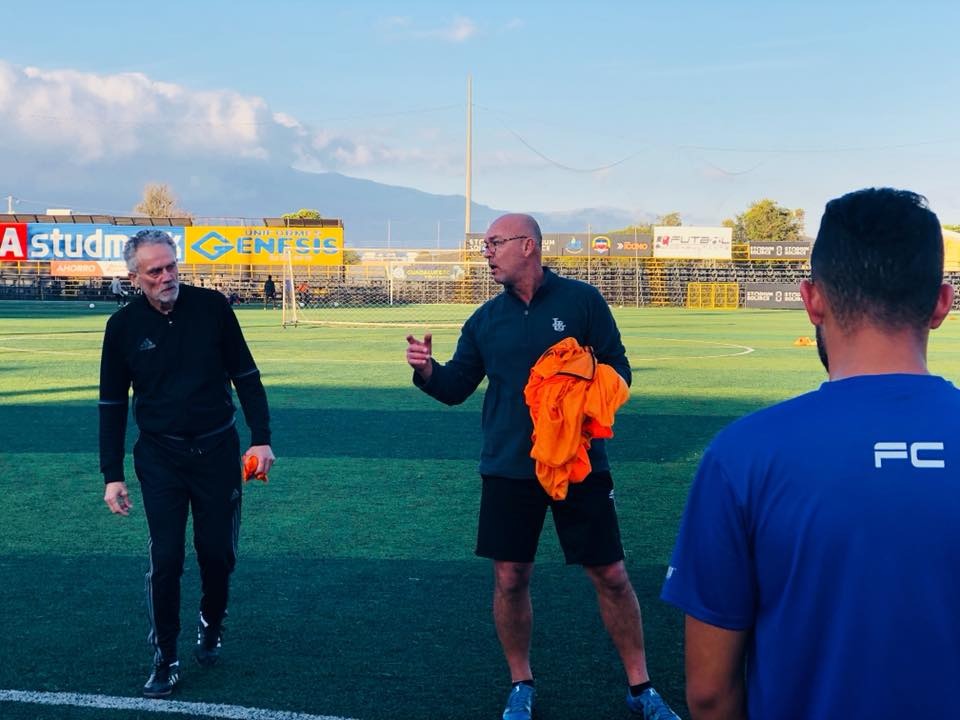
How do you compare yourself to other coaches when recruiting?
I don’t compare myself to others. Others have great ideas they may do and may work for them. My lens is always developing. I pay attention to little things all the time. For example with Christopher, one of your players, I meet him in Oslo and at the dinner table with him and his brother and he shared how his brother was driving people around but needed people with him to support him. Chris would spend hours sitting in the car while his brother was an uber just to be there to support him. That’s a guy I want on my team. Chris was a big player for us and unfortunately tore his ACL one summer but he was helping guys be better, coaching guys on the side-line during his recovery. I look at how people are behaving and how much care they have. When you care about someone and each other, you work so much harder when you believe in someone when you’re thankful.
Often as a coach, there can be alarm bells and off-putting things that coaches look for as well. What would you say these are for you as a coach?
Eye contact. Depends on the culture but in American European culture, it is a big thing, and are you paying attention and looking in the eyes. Secondly, how you treat your family when they are talking. When a parent is talking to me, I get to know them very well and I want them to ask me questions. I am watching how the player responds. If they are dismissive I am not recruiting that player. If they are dismissive of their parent and then I am going to be giving them hard honest information to get better, because they aren’t going to listen to me. I have unrecruited players, some very good players as a result of this. How you treat other people is crucial.
We have seen some athletes be out of the mix with schools due to some of these examples you have provided. Do you think it comes down to the character of an individual?
Before every training session we circle up and we do shout-outs. Before anything, we do shout-outs to one another. We start every training session positive and our energy is high. We are grateful. We also come up with ethos in our program. With the team at Bard, they came up with: Integrity, community, heart, and vision. Before every training session, I anonymously pick one player at training to share a story of an ethos of the week. When you build this culture where people are saying good things you can then accept hard things.
Was this culture similar to what was created at LIU and do you have an example of this?
At LIU, during a film session, one of the players gave up a goal. We broke down the video footage with teaching points. At the back of the room, one of the players barely played at all and raised his hand and said “there is another thing we could have done differently” and he went on to say that if another player has pressed the right centre back earlier it might not have happened. If we don’t develop that culture then the player he is calling out might be going off on him. In the next match, that player he called out was the hardest working player on the pitch. We have built a culture where we embrace criticism because I care about you and because I care, people will listen to one another.
A lot of students have a decision to make, our job is to find different options for the student-athlete. What do you think are key elements in the decision-making for the right program?
I think it is to ask yourself why are you making this decision you are making. Why are you coming to America? What is your expectation? What do you plan to get out of this experience? These would be the first questions I would ask myself as a student-athlete. It is important to do your homework when you are at the point of speaking with a coach or a school. Where do you want to land? Do you want a city or country? Hot or cold climate? Big school or smaller school? What do you want to study? How is this experience going to give you opportunities in your future?
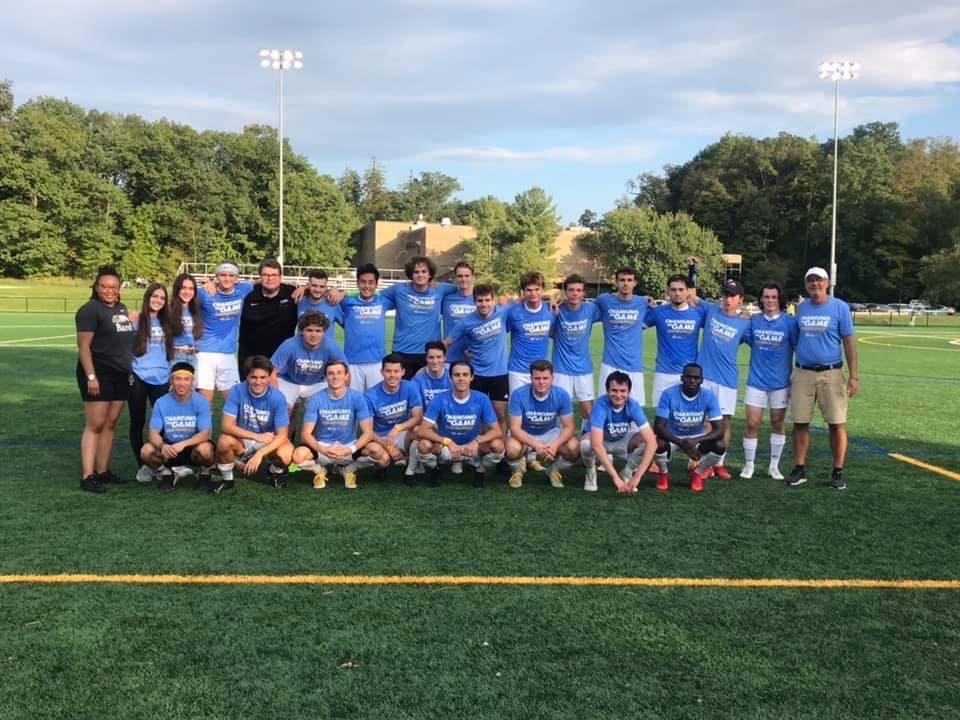
We try our best to explain to student-athletes that you have to be prepared mentally and physically for pre-season. What is the best advice for international athletes to prepare for pre-season in a short window to try and get into the team?
The biggest adjustment is the pre-season. You only have two weeks of pre-season to adjust and play proper games which is crazy but it is the system. Sometimes you can play 4-5 times before a match and you do fitness tests as well. We would run the Brooklyn bridge as our fitness test more so as a mental test to see who can psychologically deal with it and how players responded to support each other.
How do coaches help with making sure international athletes in particular are prepared for pre-season and what is the best advice for that transition?
To prepare most coaches will provide a pre-season packet which you can work on to build-up your base. Then taper down the week or so before so you are fresh and ready to go for pre-season. Get a lot of rest, drink a lot of fluids, go to bed early. It is like a boot camp with how you go through it. Doing the work ahead of time and talking to players that have been part of the program and getting some advice. The players will be honest and that can be the best way to do it.
Check out our article on tips to prepare you for pre-season HERE.
When you bring an athlete in on scholarship money there can be an expectation that comes along with that. How do you deal with expectations on these players as you would expect being on a top scholarship, they need to hit the ground running?
The longer I coach the more patient I become. Early in my career, I would ask questions of myself or that student but as I became wiser there is an acclimatisation period. You are thousands of miles away from your family and right away you are on your own. The mental health component is an important part of your journey and making sure you are supported. I have rewired my lens and my compassion by talking to players a lot and listening to them so I am patient. I have become massively better in latter part of my career to listen to players.
Often there can be pressure in college athletics to win games. Did you or have you ever felt any of this pressure to get results?
I probably did feel the pressure early on but as I grew and involved and learned how to lead people and watch top people lead with compassion, I didn’t have any frustration or pressure to do this. Research has shown that 79% of communication is non-verbal so I pay a lot of attention to my non-verbal cues. If I am tense and uptight before a match because I have to win then my players are going to feel it, assistants are going to feel it, and other people around you will feel it. It is important your mood is spot on, positive, and right. It is a challenge if you want to lead in the right way but showing you don’t have all the answers and showing vulnerability is important too. I have found that empowering people is the best way to lead. If I have 25 players I want to give them a voice, a voice that matters.
How did you find the transition from a big NCAA D1 school to an NCAA D3 from a coaching perspective?
From a coaching perspective it has not changed at all aside from the level of players. They are still capable players and they want to be good and win. They want to be successful and want to change the world and are changing the world. The football part doesn’t change and the leadership part doesn’t change in that perspective.
Is recruiting hindered being at a D3 compared to when you were at a D1?
In terms of how to recruit without scholarships, it is certainly a challenge. Bard is one of the top academic institutions in the nation and with that, it is one of the most expensive as well. We offer only aid based on financial aid but they give grants and scholarships which are need-based which are not academic or athletic-based. I don’t have any international athletes at the moment on the squad but other sports teams do. Having a former NCAA Division 1 coach at NCAA Division 3 is very unusual but parents find out after a while. They look at Bard for the school, we had the first human rights major in America, the school is off the charts and I am not exaggerating. If they happen to find out I am here, it’s because I love this place and I love the people.
For players at LIU who may have had big scholarships, it can come with pressure for them that they have to deliver. In D3, you don’t necessarily have that pressure due to not having any athletic aid. Have you seen a difference?
A lot of it is expectations of other people. There are the athlete expectations, you have to meet your parent’s expectations, your friend’s expectations, so if those expectations are not met then that’s what affects the joy. I talk often about your role on this team and who you are in this team. Your identity is not just an athlete it is someone who has wide experience as a human being so it takes that pressure off. At Bard, one of my top strikers is also in the orchestra as he is a talented musician and has to miss training on a Monday. I don’t punish him, I let him do that because he is a musician and good for him. At D1 level, it may be a little different because you don’t have time. Time and health are the two most precious commodities I believe.
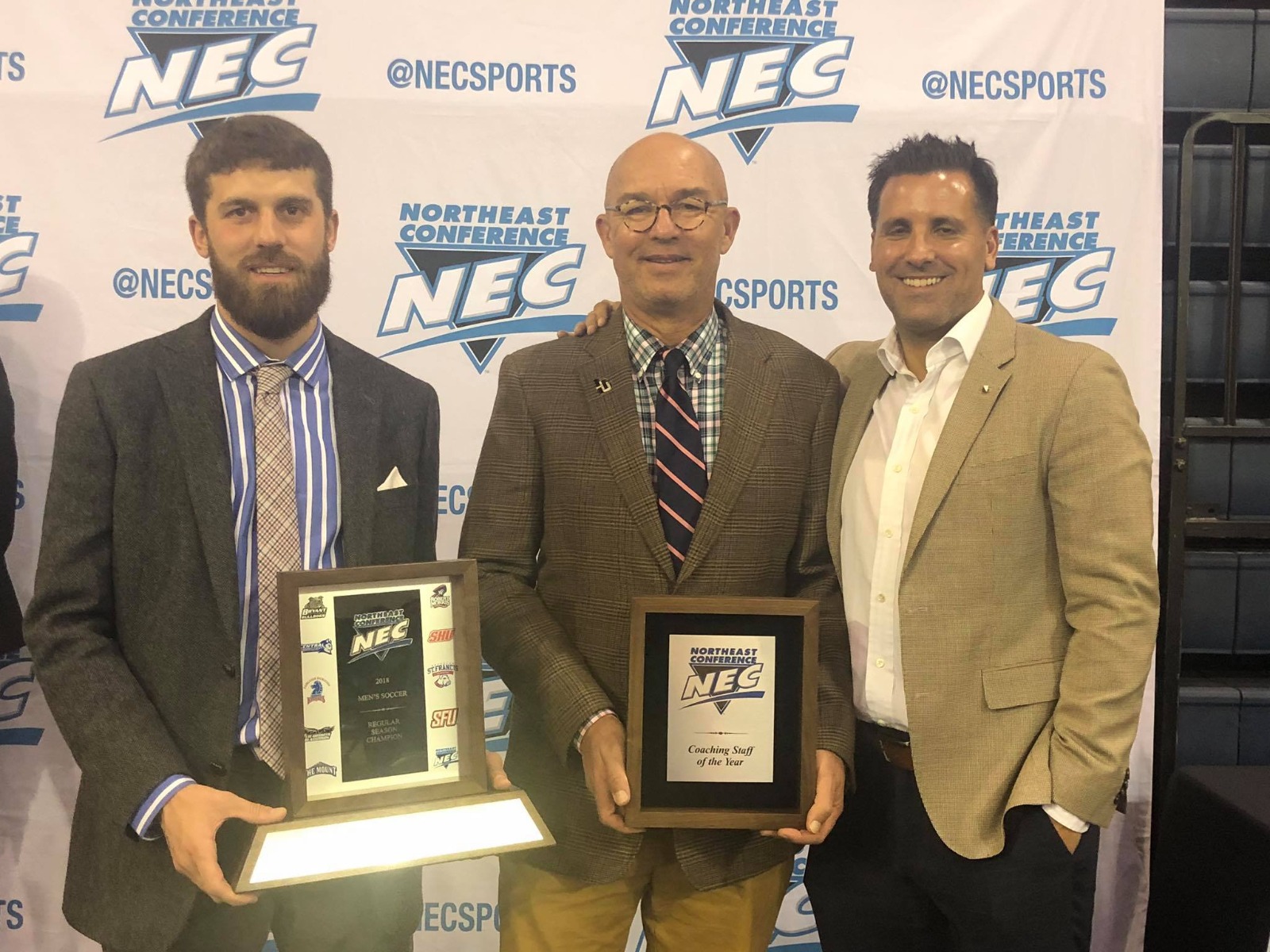
When you are in the season, it goes by so quickly. How do you get the best out of each player especially the internationals who may not be used to such a tight schedule?
What I discovered is that because the season is so short (August to November) and you are training and playing 6 days a week. International students are not accustomed to that at all. It is a big burden and a heavy load for them. My sessions are short, I give players breaks and I am very conscious of the energy levels they have. Usually, we play twice a week whether it is Wednesday and Saturday, whereas at LIU it was Friday and Sunday which is crazy because you get a Saturday in between to recover and do regeneration. Part of that is a swim in the pool, massage, stretching, working with the S&C coach, and having conversations with them about how they are doing and how their mental health is doing.
Is it important to build a structure or routine that works to be successful as a student-athlete?
As a student-athlete coming to America is important to build a good schedule for yourself so you know when you are getting up and building a morning ritual that makes sense for you. Then building in time for studies and football and we also travel a lot, so it is important to keep that in mind. If we travelled to the west coast we would leave on a Thursday morning then get back on a Monday morning. You’re in three different time zones in California then have to go to class at 8 am on Monday. Knowing this in advance is very important. I would advise there are three things you can do as a student-athlete. Sport, academics, and social. There are only two you can do really well. If social is one of them then the academics are going to fail or on the pitch, you are going to fail. You are coming for the sport and academic experience and also having fun and having social time because you will meet people and develop friendships for the rest of your life. It is really important you don’t go hard in all three because one of them will fail for sure.
From a soccer standpoint, spring provides a bit more freedom for athletes to have more time to themselves.
The spring is a time to grow and provide a lot of growth. In the fall you are competing and playing all the time and under pressure, because there are no breaks in rhythm. I love the spring season because of the non-traditional season where there are not as many training sessions and games as you are permitted to certain rules on game time. This is where you do your internships, you take advantage of all the assets at the college you are going to. The socialisation is much greater in spring and you can go on spring break and travel around the United States and visit, experience, and meet people.
There is an abundance of opportunity and often the school (if you want to) will really help you land something that is going to be good for your career, your degree, and even just life experience. How have you found it being at both LIU and Bard?
I was fortunate when I was in downtown Brooklyn and they could just take the subway. I got an internship for two of my guys at Jay-Z at Roc Nation and they were able to just get on the train and go there. Some players played on a club team in the summer, Brooklyn Time, which is a very good team in New York. One of the members of the club has his own wall street firm and one of the players got an internship.
At Bard we have phenomenal internships we are less than 2 hours by train from Manhattan and we have a very active career development alumni base that places students all over the world and domestically. For example I had a goalkeeper who was a sophomore who told me at the end of the season that he was not able to play anymore because he had the top internship at wall street as a sophomore and he needed to put time into this. One of the big 5 on wall street and now he is a junior and spending the summer in New York and they paid for his place, apartment, job and he is only a junior! There are those networking connections at colleges so you need to speak with the alumni office as they are people who want to help and connect with you. It is about being very proactive and recognising the brand is you. You can’t wait for someone to brand you. Wherever you go how can you connect with people in a meaning and authentic kind of way. What value do you bring to the college and university?
Do you feel international students bring value?
I would argue that international students bring tremendous value. We need European students to come and educate us and expand our lens so we can become better at what we do. The internationals that have come over, and CSUSA have been a big part of that, have helped our American players become wiser, smarter and more compassionate in understanding.
The experience creates a bond for life with friends and coaches where you often see student-athletes creating a friendship for life.
The friendships your students are going to make, they are going to make friends for the rest of their life with Americans from all over. An English player who played for me 25 years ago had half a dozen of his teammates that flew from America to be at his wedding. One of my Canadian players posted this morning about one of his teammates and gave him a shout-out. A Canadian goalkeeper who played for Canadian Olympic team and now works for the Canadian Olympic committee gave a shout out to a guy from rural Virginia who he met in Brooklyn. How cool is that?
What is the best advice for an international student athlete when they are in the states? The one ingredient you need and is critical to be successful?
Find ways you can bring value. How can you make the place and the team better than it was before. What can you offer. Whether it is your sporting skills, life skills or leadership skills. How can you make it better. How can you connect authentically in a real way with people because when you do that, you will expand your own network of people and opportunities and you will find that things come to you that you never even imagined because of the value that you bring to the group.
Finally, last question from us, my TV show hero growing up was MacGyver and he was just called MacGyver, like you TJ. In one episode they finally revelated his first name being Angus. So the question to you is, what does TJ stand for?
TJ is my legal name. It is two letters, TJ. My middle name is Ihor and my last name is Kostecky. I got it changed legally when I was 14 years old.
Why did you change it to TJ?
I was named after my uncle who died in the war and his name was Igor. Terrible name in America because I used to get teased all the time. My mom wanted me to be named Tony after my father so I would have been Tony Junior. So she gave me the nickname TJ and all in my neighbourhood everyone would call me TJ so I decided to legally change it at 14 years old.
Well you heard it here first. TJ, thank you so much for taking the time out of your busy fall schedule to share your wisdom. You bring phenomenal leadership training to the table that many of our players have enjoyed. You have changed lives of many many student-athletes. We can’t wait to have you over in Europe soon.
Wonderful, I look forward to the visit and thank the two of you.
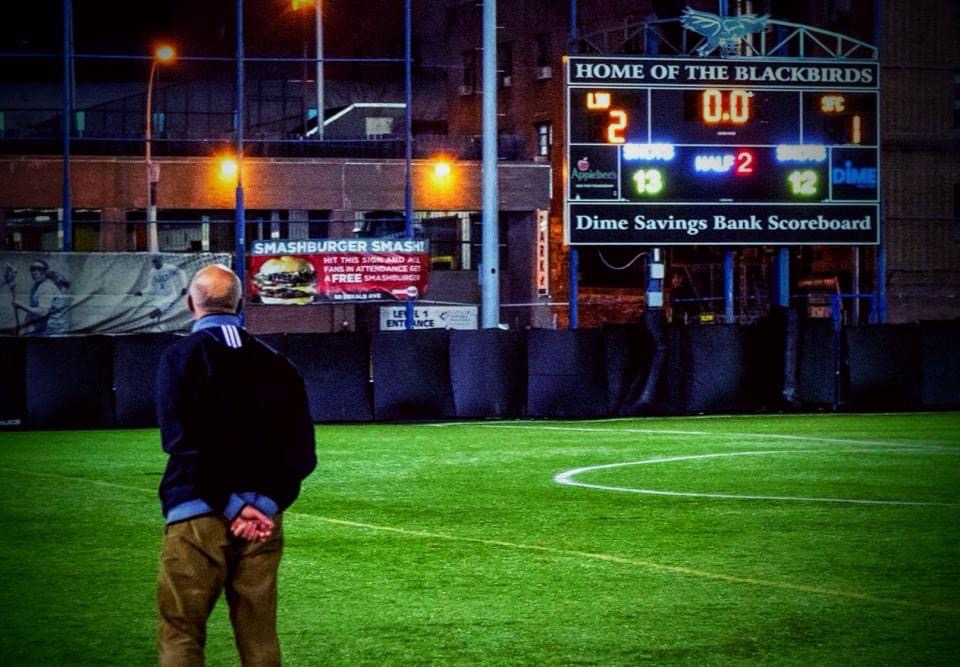
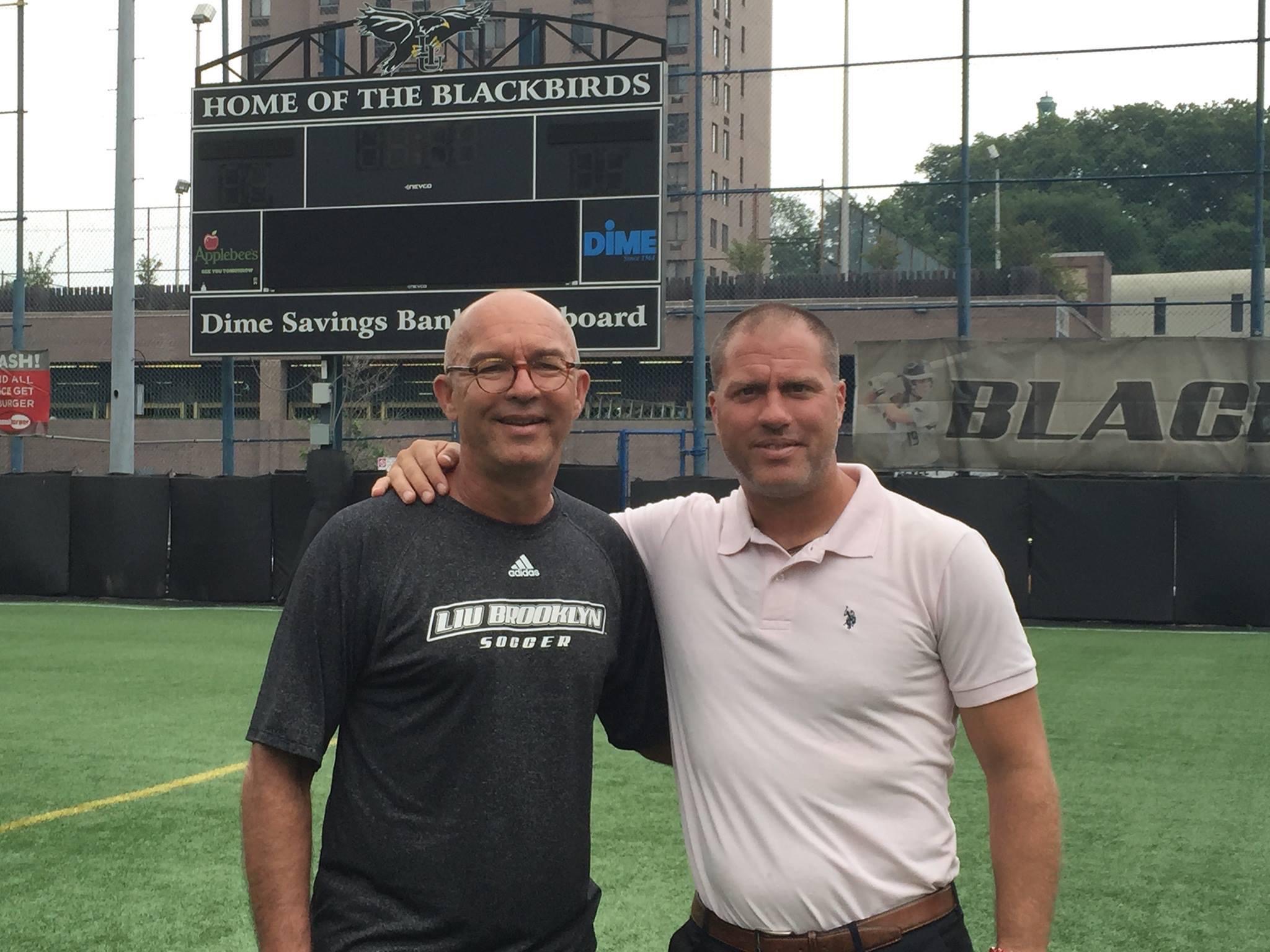
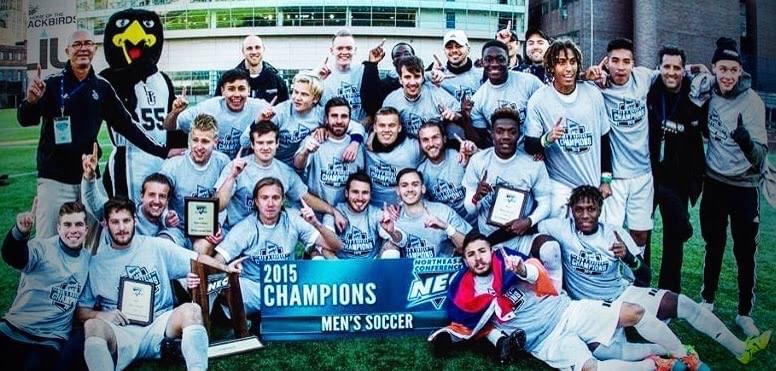
Check out TJ’s impressive collegiate career HERE and his current school, Bard College HERE.
If you are looking at becoming a student-athlete we recommend you complete a FREE ASSESSMENT today to see what opportunities you have available.
